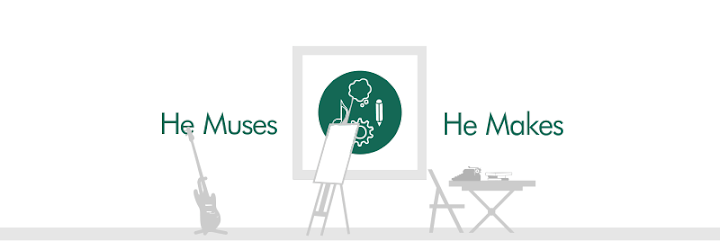
This originally appeared on misteragyeman.blogspot.com on September 17, 2014.
Space. The trotros have got me thinking about space a lot these days.
Stars are in space. Stars are balls of fire. There are as many of them as there are grains of sand on the beach. So why don’t we see them in a body like we do the beach? It’s not a question we often ask – I just told myself those star-studded skies in movies were fake- but some very smart people have worried over this. They have a long, complicated answer, which boils down to this- stars further back shine less light than stars in front. And because they aren’t evenly distributed and static, this means that some never get a chance to show their glory to us. Stars seem to be okay with this. Humans couldn’t be; we keep a list of areas lit brightly enough to be seen from beyond our atmosphere.
Civilization is all about interactions, and space is a big factor in our interactions. But in every system there’s inefficiencies. So let’s divide interactions into ‘communication’ and ‘noise’.
Noise is useless sound and wasted energy. Sometimes we speak of ‘joyful noise’, but generally we accept that noise is not a good thing. It might be bad because of the context, or in relation to the environment, or just because it’s nasty. Flies are nasty. I’ll fight with anyone who disagrees with that.

But I use the word ‘noise’ in a wider sense. We can be noisy in space, or in appearance, or in relation to others. Even ideas can be noisy, I think. If any communication escapes its purpose, I call it noise. A shade of lipstick might be loud, as may a manifesto.
I recently saw two generators- one of the big, powerful ones in the professional yellow uniform, and one of the dinky little ones that would struggle to power two-and-half scooters. There was a steady roar in the area – sounded like a fifty-foot giant; naturally everybody assumed it was the big yellow guy. Turns out, it was the young blood. The roar was its main concern; electricity was a small by-product. I’m convinced that if it could be persuaded to concentrate and just generate power, it could save Mahama’s government.
We talk a lot about efficiency when discussing machines, but not so much when dealing with life. It’s generally accepted that everything is better when it’s streamlined. Athletes have engineers and scientists figuring out how to help them improve airflow, but the human is still tempted to trust power more than technique. We are built in a way that puts our centers of gravity high up. Ideally, one would assume everything would be a sort of ball. The fly is a ball, but it wastes so much power buzzing. The amoeba doesn’t – but then it’s amoeba.
So as systems get bigger, we can assume that their waste grows exponentially larger. Fine. Humans are pretty complicated systems. Social interaction and self-image are governed by one of the systems within us. Ever noticed how people are more likely to scratch themselves when they are dozing off? It’s an involuntary action, so your consciousness get overridden. Once that first action gets through, your body uses the window of opportunity to do other uncool things that it has wanted to do for a while. In troskis this phenomenon keeps slapping you in the face. It’s bad enough when people catch a coughing fit – but then they start grooming themselves. I try to forgive them, though it is hard when nose-picking is involved. Anyway. Point is, we seem to lose feedback from our environments when a problem requires a selfish solution. I know what a total slob I become when I’m sick.
But we are not always sick. Our work as civilized people is to eliminate everything we cannot justify. Everybody says funeral DJs play their music too loud. They do, and for selfish reasons; every gig is an advertisement for the next. But nightclubs are equally loud- because it makes people lean into each other to speak, creates intimacy. Then movies have to be loud – now they master for surround theatres, which is why the gunfire is loud and the dialogue is barely audible – but they have to be, because how else will you feel it? Then music has to get louder to show it’s getting richer; we call it crescendo!
In this way, noise becomes shorthand for emotion and organic interaction.
With close friends, all you need to do is squeeze a shoulder, or raise an eyebrow. That’s the problem with noisy living; it sacrifices intimacy. The same things that we fight for random faceless people to preserve for us on the Internet, we sacrifice in our cherished Real World. When you shout something, you automatically include everybody within earshot. My eighteen inches are mine; that’s the unspoken Golden Rule of personal space. Any sound that invades that space when it isn’t meant for me – that is litter. Everybody has a right to resent other people’s litter.
Eco-estates are a new thing now, a rebranding of the village culture for the over-cluttered 21st Century middle-class. One of their fundamental principles deals with population density: they aim for an average maximum of five people per hectare. That’s more personal space than I think I need, but it’s an interesting concept. As humans we are aware of how we are perceived by others; this influences our appearance, our opinions, our actions. It just takes a little more consideration to begin to consider if we are also broadcasting perceptions which aren’t really part of us; our loudness, our brashness, our this-is-what-I-am-ness. Because what you are is what you are. What people see is what you put in their space.
I have to think about this stuff because I mistrust my ability to judge social cues; I can’t rely on organic feedback to adjust on the fly. That means I have to work to achieve a standard projection of myself that doesn’t disturb the majority. It’s hard work for me. I’m a loud and contrary person; I like to plead that this is because I’m the last kid in a big family. But it is enjoyable work. It’s nice to get your space to yourself, knowing – or believing, which may be all we get – that everything is tucked neatly within it. It is the satisfaction of spring cleaning, spread all over your life.
There are examples we can look to. The earthy colours of our traditional clothes aren’t entirely circumstantial; in a way, rural life teaches you to be unobtrusive, to be in harmony with nature. Then we have Oriental cultures, where most overt gestures are assumed to be conscious and meaningful. They say almost all businessmen in Japan wear dark-blue suits. Some fashion magazine claims, some centuries back, one English lord made the happy discovery that this colour is often darker than black. Already this happens in most urban cultures, till the tie and socks may be a male worker’s only chance for colourful self-expression. But why do we need colours to speak for us?
Leave a Reply